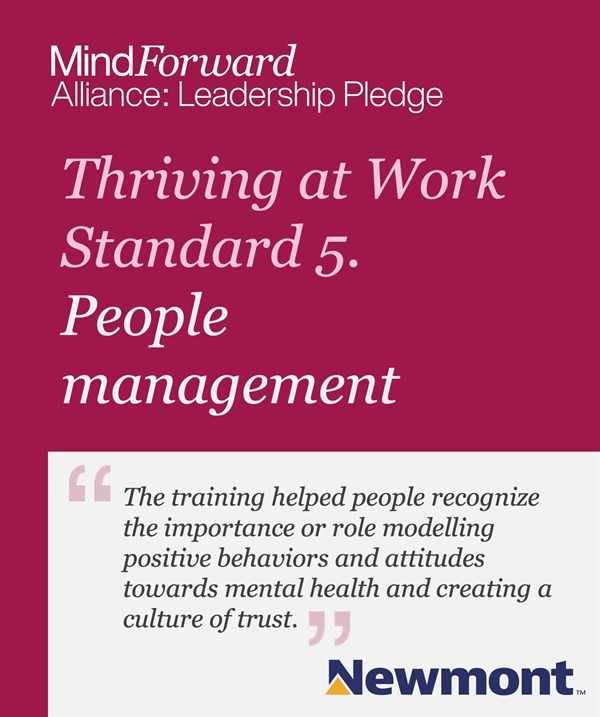Newmont is the world’s leading gold company and producer of copper, zinc, lead, and silver, with operations in Africa, Australia, Latin America & Caribbean, North America, and Papua New Guinea.
Amid the COVID-19 pandemic, the company began implementing an extensive mental health literacy programme among employees including, in 2021, a global programme of mental health training for leaders.
Having a globally dispersed workforce with multiple languages, Newmont developed training for leaders through a digital platform that facilitates group discussion and collaborative learning. The training introduces common language and understanding around mental health. It also focuses on creating a mentally healthy workplace and leading through stress and uncertainty. The training is offered to people managers and participants can attend online, hybrid or in person. It is available in English, French Canadian, Latin American Spanish, Argentinian Spanish, and Dutch.
Importantly, this work has had visible support from senior leaders. Newmont’s executive team contributed personal messages outlining the importance of mental health and wellbeing to themselves, the organisation and the communities in which they operate. This high-level endorsement helped underscore the importance the company places on employee mental wellbeing and validated the efforts of leaders to engage with the training program.
At each site and location, General Managers, Health and Safety and Learning and Development teams supported the implementation and roll out of training to ensure success.
In the first two years of the programme, more than 86% of the targeted 2,500 leaders completed the training. Among participants, it has led to a 20% increase in understanding mental health and confidence in noticing the signs of distress in team members, and an 18% increase in the likelihood that leaders would have a conversation with someone about their mental health if they noticed they were struggling.
Feedback has been overwhelmingly positive. Participants report it has helped them to recognise the importance of role modelling positive behaviours and attitudes towards mental health, and of creating a culture of trust, respect, and psychological safety in their teams.
Newmont says the programme has already helped to increase engagement, productivity, and retention of staff, and they are constantly looking at ways to improve and expand it. Plans include developing a refresher course to reinforce learning and rolling out training to all employees, possibly through micro learnings and interactive activities to make it as accessible as possible.





